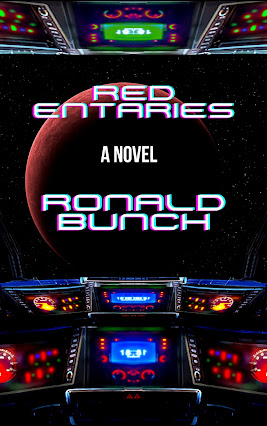Writing Tips Part 1
Every scene is likely to have a unique order of phases and a overlaying theme that is a means to an end and the cause and effect of the next scene. (Later that theme can solve another scene's problem) The biggest changes in external, internal settings establishes a feeling of no possible way of turning back no matter what. The character/s start to talk about the possible outcomes because they will have to take responsibility for the outcome.
Normal Pace Phase (Cycle)
1) Traveling long or short distances.
2) Narration and description. (Medium)
Dialog Phase (Cycle)
1) Dialog.
2) Narration and description. (Short)
Provoke Interesting Questions Phase
(Make the interesting questions unique to the story)
A) Answer questions without saying what the question is, “oh, that's how it is! Didn't expect that! Cool!”
B) The question has the potential to be answered in the next few pages, preferably in the next few lines.
C) Provide clues so that the reader can at least try to guess the answer to the question.
Action Phase (Cycle)
1) Action.
2) Narration and description. (Short)
Time Passing By Phase 1
(It can be a scene that shifts the story in a new direction)
A) Tell how many days went by as an event takes place (The Hole)
B) Show what happens on those days.
C) Transition into another scene.
Have a character/s travel to five main locations and at each location is where the main event will take place at the end of thirty pages or so.
Time Passing By Phase 2
A) Show time pass by. (A Shorter Phase 1)
B) Narration of a character's back story.
C) A character's down time.
D) Transition into another scene.
Down Time Example
Sunday was a difficult day for Cliff. He attempted to phone Joanna on his break, but she wouldn't answer. He made time for exercise at the gym on his day off, still thinking of Joanna. Then taking a stroll at the park cooling down, thinking she betrayed him. On his way back home Cliff decided not to go bowling, but for a smoke. Sometimes he would smoke a pack of cigarettes, but he was too depressed even to enjoy that, or a simple game of cards with his bar buddies. He would still show up to the funeral, then he received a call...
Description/Narration Phase
(It has to matter to the character and to the scene)
A) These can take place during any phase.
B) Show an important reaction by a character.
C) Explain that important event by the character's point of view. Show description or narration. (Maybe both)
Terrain Description
It shows the place, time and culture of a terrain. Describe the terrain in contrast: from the largest object to the smallest. The shape and color of a tree compared to grass and the white picket fence. Mountains to hills, with the sun rising over its peaks. Describe the terrain with action: the still pond, the blowing desert, and the breaking clouds.
Observe all your senses in the surroundings. Describe the north, south, east, and west areas of a city etc.
1) Describe the circumference of a city, number of houses and where are they? Which direction do they face? Add large terrain structures or dikes, then a causeway or a bridge that leads to a gate. Describe the walls, gates and unique structures.
2) Describe the middle of the city. Why was it built in this location? How were the buildings and roads used?
3) How is the story taking place in this city at the present?
Always describe how long distances are! If appropriate, and sometimes you can show instead of telling. Such as: Spiderman hurdled over the cars down the short avenue across from an alley. Instead of: Spiderman hurdled over the cars down twenty meters of a dark avenue across from an alley. Instead of saying how long a distance is you can say they traveled for thirty minutes etc.
The Hole Phase
Its an event that has not taken place, but the reader knows it eventually will. You can show a summary of this important event over a few pages or so, such as in a diary-pros narration. Then you can show a scene of the main characters. The reader will come to the conclusion, the main character etc. must have a part in this special event and that the main character's will eventually fall into this 'hole.' This makes the reader curious about how this will happen because he does not know when or how they will fall in.
Did this help?















No comments:
Post a Comment